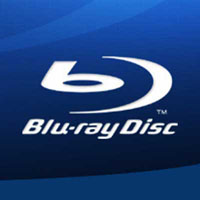The DVD Forum was set up in August 1997 as a voluntary association of hardware manufacturers, software firms and other users of DVDs. The big manufacturers were predicting that beyond-DVD discs and drives would be a reality at the start of the next century.
In the event, that proved to be a little over-optimistic, but by early 2002 a faction within the DVD Forum’s Steering Committee were promoting a blue laser successor to the original DVD format – dubbed Blu-ray Disc (BD) – that was capable of providing storage capacities of up to 27GB and 50GB on single-layer and dual-layer discs respectively.
According to the DVD Forum’s own website (www.dvdforum.org/faq-forum.htm#1 – link valid 11th March, 2009), they had two main purposes:
- To establish a single format for each DVD application product, including revisions, improvements and enhancements for the benefit of consumers and users.
- To promote broad acceptance of DVD products on a worldwide basis, including the entertainment, consumer electronics and IT industries as well as the general public.
Frankly, their success in achieving these aims has been limited. Their ambition was to avoid a repeat of the specification shambles that plagued the original DVD rewritable formats, but it quickly fell apart, and from the inside.
In the autumn of 2003, within a week of a grouping of nine members of the DVD Forum’s Steering Committee announcing their support for the BD format as successor to the original DVD format, the DVD Forum itself voted to approve the use of a completely different low-bit-rate compression technology – proposed by DVD format pioneer Toshiba and NEC – renaming as HD-DVD the format that had hitherto been referred to as the Advanced Optical Disc (AOD). This was no minor squabble, and immediately augured ill.
 In the original Blu-ray camp from the DVD Forum were giants such as Hitachi, LG Electronics, Matsushita Electric Industrial, Pioneer, Royal Philips Electronics, Samsung Electronics, Sharp, Sony and Thomson Multimedia, who called themselves the Blu-ray Disc Founder Group. In 2004 they changed their name to the Blu-ray Disk Assocation (BDA) to allow other companies to join, attracting the likes of Apple, Dell, HP, Sun Microsystems, JVC, LG, Mitsubishi, Panasonic, Pioneer, Philips, Samsung, Sharp, Sun, and TDK.
In the original Blu-ray camp from the DVD Forum were giants such as Hitachi, LG Electronics, Matsushita Electric Industrial, Pioneer, Royal Philips Electronics, Samsung Electronics, Sharp, Sony and Thomson Multimedia, who called themselves the Blu-ray Disc Founder Group. In 2004 they changed their name to the Blu-ray Disk Assocation (BDA) to allow other companies to join, attracting the likes of Apple, Dell, HP, Sun Microsystems, JVC, LG, Mitsubishi, Panasonic, Pioneer, Philips, Samsung, Sharp, Sun, and TDK.
With such a powerful array of industry leading companies backing Blu-ray it’s difficult to imagine any serious opposition. In effect, the BDA assumed a role much the same as the DVD Forum’s, but focussed specifically on Blu-ray. The BDA website states that they are a group of companies dedicated to developing and promoting the Blu-ray Disk format (http:///www.blu-raydisc.com/en.html – 12th March 2009) – sound familiar to the mission statements of the DVD Forum?
The DVD Forum, though, already had industry status, and they weren’t without their own major heavyweights onside – in particular Toshiba, Memory-Tech, NEC and Sanyo. They also appeared to have won the support of many Hollywood movie studios, as in 2004 Warner Brothers, Paramount, New Line Cinema and Universal Pictures all announced their support for HD-DVD. This was important because other movie companies, notably Disney and Twentieth Century Fox, had previously made limited but nonetheless supportive noises for Blu-ray.
Critically, the BDA members were all also members of the DVD Forum, and yet stood in direct opposition to the DVD Forum’s voted for and stated preference for HD-DVD. It was an impossible situation, with two goliath entities locked in diametric opposition. They entered into years of global corporate war which, in the end, the BDA won. But in any war, casualties come on both sides, and there is no doubt that Blu-ray suffered massive losses throughout the affair which it has yet to recoup, and some say it may never will.
- The blue laser diode in optical disk drive technology
- DVD Forum and the Blu-ray Disk Association (BDA)
- Blu-ray vs HD-DVD – the war of the blue laser optical disks
- Blu-ray Region Codes
- Blu-Ray – the Hi-Def Blue Laser Disk Technology
- HD-DVD (High Definition Digital Versatile Disk) – blue laser optical disk
- Blu-ray Disks (BD) – blue laser optical disk technology
- Blu-ray region codes – map and explanation
